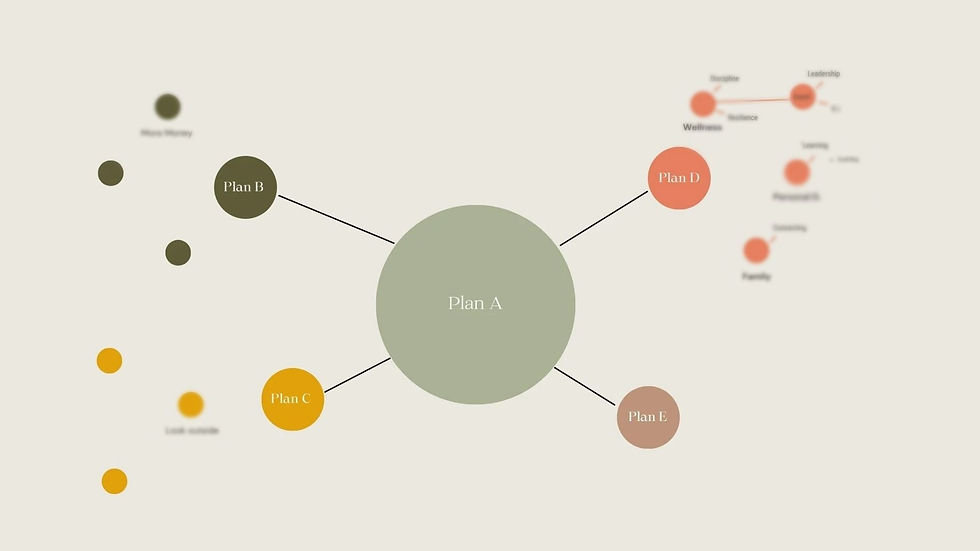In The Cold Light of Day: what we may gain in time of crisis
- simonavaglieco
- Jun 10, 2020
- 3 min read
Updated: Nov 18, 2021

More and more often, I see clients who seem to have lost their sense of purpose. They feel stuck in a hole when everything feels pointless. What was a pause, a temporary hiatus has become the new reality. In fact, there is no hope things will change anytime soon. Every day, conflicting information from politicians and scientists make our hopes rise only to dampen them down again with the wrong case scenarios and no future perspective. Perhaps it comes as no surprise that some of my clients, especially those in their 30s, feel less efficient and they struggle to shrug off a new kind of exhaustion. They feel disconnected from their goals, experiencing a lack of purpose. For a generation used to living in times of abundance and freedom of choice, the unsettling experience of the pandemic is a profound shock shaking a blind faith in progress, opportunities, confidence and ultimately, productivity. As a coach specialising in transition, I quickly noticed that what was helping them in the past was not so useful in this new unknown situation.
Louis was in limbo. He liked his life before so much that he couldn't accept the change.
As a consequence he was clinging to the hope that everything would go back to normal. His optimism and his faith that everything would be all right, regularly crushed him whenever he was reading the news.
Let me introduce Louis. Louis, a freelancer, working in the arts, had seen his job disappear in a matter of hours. What was worse was his self-confidence, and his sense of direction had taken a hit: he was struggling to even fathom a future for himself. He had a few ideas but somehow felt that any effort was pointless; to discuss work opportunities with his network "insensitive". I had tried different approaches with him, but I was not getting very far. It took me some time to notice the sticking point. Louis was in limbo. He liked his life before so much that he couldn't accept the change. As a consequence, he was clinging to the hope that everything would go back to normal. His optimism and his faith that everything would be all right, regularly crushed him whenever he was reading the news. Somehow I realised that Louis would never be able to move forward if he couldn't accept that life, as he knew it, was over. The first step was, therefore, to challenge him to accept the new reality but with a different spin: namely identifying the three most positive things that he had learnt from his experience. This proved to be Louis's awakening. It immediately helped him to shift perspective, and with a re-energised client, we proceeded at a steady pace.
When we accept our reality as it is, we are in fact regaining control and with it confidence. We might still be heartbroken, but we can find more natural to navigate what is familiar.
When we accept our reality as it is, we are in fact regaining control and with it confidence. We swap the uncertainty of what the future can hold with the knowledge of what is happening now. We might still be heartbroken, but we can find more natural to navigate what is familiar, even in these changed circumstances. Familiarity is the safety net that supports us in feeling strong and confident that we can make it in turbulent times, because, well, we've done it before. Like in a paradise-lost-scenario, our new re-energised self can eventually rediscover a purpose and create our tomorrow. Ingenuity will wake our senses and give us the thrill of the novelty, which will support us in the process of making our vision a reality. Not surprisingly a "staunch acceptance of reality", according to Diane L Coutu ( "How resilience Work", HBR, 2002 ), is one of the traits common in resilient people and organisations that successfully make it and thrive under challenging circumstances. "Resilient people [...] possess three characteristics: a staunch acceptance of reality; a deep belief, often buttressed by strongly held values, that life is meaningful and an uncanny ability to improvise." Facing reality, to quote Coutu again, is "gruelling work. It can be unpleasant and often emotionally wrenching." Still, it can put us in a very privileged space because by assessing the present in the cold light of day will allow us the opportunity to change and redefine our future in a way that may work better for us. Like any journey, acknowledging the present and discovering the value of change is the first step in a process which can make the now more manageable while at the same time laying the stepping stones to our future.



Comments